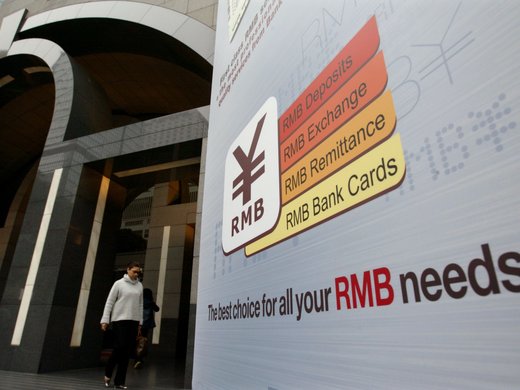To non-economists — and, sadly, for that matter, economists under the age of 50 — the name Harry Johnson probably doesn't have any particular significance. That is unfortunate. Johnson was a colossus in economics for roughly a quarter century from, say, the mid-1950s to the late 1970s. James Tobin's obituary (and, yes, if you don't know of Johnson you probably don't know Tobin) spoke of the period as the "age of Johnson" in economic theory. Johnson died far too young, in his mid-50s. Despite his premature death, he bequeathed a rich legacy to economics by way of his prodigious output.
I am just old enough to have been exposed as an undergraduate to Johnson's work in trade theory and the monetary approach to the balance of payments. What I didn't appreciate until recently, however, is Johnson's writing on the history of economic thought and contemporaneous public policy issues, including the policy challenges facing Canada. His writing is a model of clarity and precision. I can think of only one other person who rivals him in this regard (hat tip: HB). Given the uncertainties facing Canadians, a Johnson-like figure could provide some much needed guidance, if not reassurance.
But Johnson was not a nationalist "Canadian" economist. Far from it. He was, rather, an internationalist who, along with others of his generation, looked approvingly on the efforts made in the wake of a global war to build a just and lasting peace and strengthen the international trade and payments system.
The IMF was at the core of that system. In a remarkably prescient paper ["Where is the World Going?"] originally published in the Report of the 1962 Summer Institute, Mount Allison University, Johnson argued the IMF was created to allow countries to trade confidently with one another without worrying about the risks of exchange rate fluctuations. "The system," he said, "permits countries to change their exchange rates if they'd get into serious difficulty, and it was intended to provide sufficient liquidity to tide countries over temporary balance of payments problems without their having to take stern action on their domestic policies." The key point, here, is that the arrangements of the Bretton Woods system were intended to create a policy environment conducive to full employment. In other words, the system supported the policy objectives; not vice versa.
In time, it became evident that the system wasn't working as designed. Rather than too much exchange rate adjustment, as had been the case in the inter-war period, with wild exchange rate changes as countries left the gold standard, exchange rates moved too little. Johnson's diagnosis was that the system, which was intended to facilitate modest adjustment to parities, had fallen into the hands of the central bankers. And, he said, "the difficulty with central bankers is that they believe more in financial morality than in the economic functions of money." This has to be one of the most pointed critiques of central banking in the history of economics. The problem is that central bankers "...believe it is a question of virtue whether a country maintains its exchange rate or not; that it is somehow a loss of prestige to devalue your currency." I recall the late Doug Purvis, who trained under Johnson at the University of Chicago, making the same point when I was in grad school at Queens many years ago.
The money quotation, however, comes in his description of efforts and to keep the system together. This entailed central banks lending reserves to each other in a series of swap lines. Among the disadvantages of this approach, Johnson noted, was that it involved central banks, or in some cases the departments of finance, having the last word in passing judgement on each other's policies. "This is not necessarily a very good system, given the narrowness of outlook or sheer incompetence that occasionally prevails even in such high places."
"Ok," I sense you saying, "what does this have to do with anything?" Well, as I was reading Johnson's analysis of the travails of the Bretton Woods system, I couldn't help but think of the Eurozone and its dismal economic performance over the past eight years. And, just as central bankers, in confusing "economic morality with the economic functions of money," incorporated into the IMF a collection of moral principles that, in effect, transformed the Bretton Woods system into the prewar gold standard, putting all the adjustment burden on deflation rather than inflation as the way of curing balance-of-payments troubles, the reliance on "internal devaluation" (aka deflation) in the Eurozone has had the same effect. With monetary union, the moral judgements are not on exchange rates but on domestic policies. These assessments can be particularly damaging if they are accompanied by a dogmatic insistence that Say's Law "does too" hold and an almost child-like belief in the Victorian virtues of household economy.
"So," I pondered, "is the problem with Europe the fact that some sit in judgement over others?" As Johnson argued almost 55 years ago, this is not necessarily a very good system, given the narrowness of outlook or sheer incompetence that occasionally prevails even in such high places. Perhaps the difficulty with some finance ministers is that they believe more in fiscal morality than in the economic (and political) functions of the common currency.


